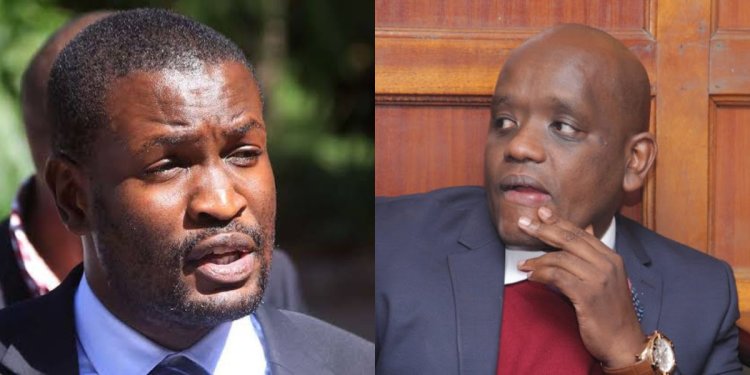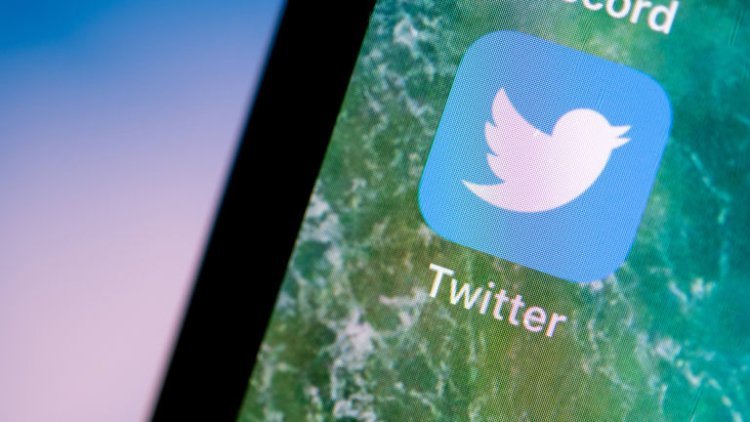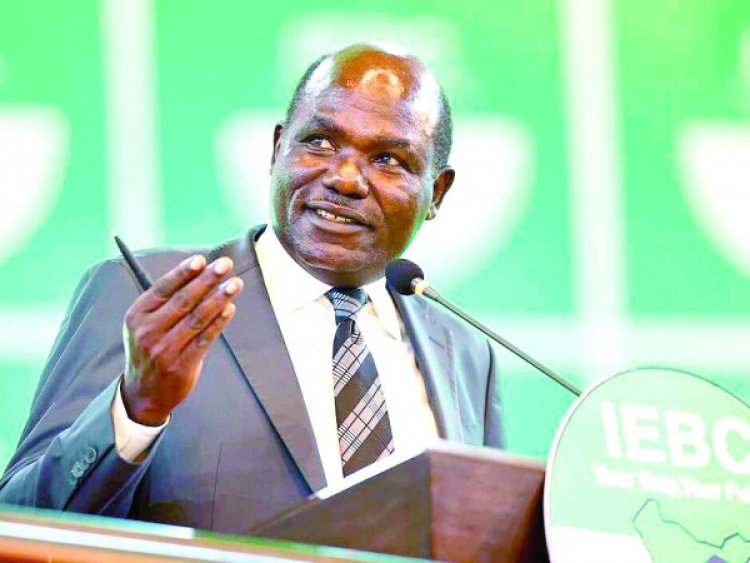MCK: Sifuna, Itumbi Among Those Spreading Fake News During Elections
Vocal and influential social media users especially on Twitter shared misinformation during the electioneering period

The Media Council of Kenya (MCK) has now observed that a number of social media users, especially on Twitter, have been sharing misinformation with regard to the August 9, 2022 general elections.
In its report titled Media Performance & Press Freedom Violations Pre, During & Post the August 9 General Election in Kenya, MCK noted that the individuals, among them Nairobi Senator-elect, Edwin Sifuna and United Democratic Alliance (UDA) digital strategist, Dennis Itumbi, have been vocal in spreading fake news across the social media platform.
Further, vocal and influential social media users especially on Twitter shared misinformation during the electioneering period, that involved the vote tallying and announcement of the results.
The media regulator noted that there was a weaponisation of misinformation and propaganda during the elections and beyond especially on digital platforms that border on defamation and publication of false content.

A smartphone with the Twitter app. /FILE
To be specific, most of the websites that shared misinformation were designed to make consumers assume they are reading reliable sources.
Other individuals noted to have been affected by the wave of misinformation include Senior Counsel Ahmednasir Abdullahi, former Nation journalist Mac Otani, exiled lawyer Miguna Miguna and Kileleshwa MCA-elect, Robert Alai.
"There was enhanced role of digital platforms and influencers in the election – including information sharing, fundraising, publicity, advertising and related areas.
"Further, vocal and influential social media users especially on Twitter shared glaring misinformation in the process. Edwin Sifuna, Ahmednasir Abdullahi, Dikembe Disembe, Mac Otani, Dennis Itumbi, Robert Alai and Miguna Miguna were some of those affected," the report read in part.
MCK also highlighted that most of the content was fabricated to mislead consumers and spread fake news within their networks.
From the Media Observer monitoring desk, it was noted that bloggers played a significant role in spreading misinformation and propaganda, with the trends noted including most media houses being caught in the web of sharing misinformation, especially on the suspension of the unga subsidy by Agriculture Cabinet Secretary Peter Munya.
The alleged suspension would have seen the price of unga shoot upwards from the Ksh100 directed by President Uhuru Kenyatta on Wednesday, July 20.
"Use of hashtags to front an agenda by different political parties and misinformation was identified from the hashtags. The use of pseudo accounts by individuals was very rampant during the election period, an example is Davis Chirchir, S.K Macharia and Wambugu Ngunjiri.
"The use of reputable brands (media houses) to spread propaganda," the report added.
MCK then responded to Independent Electoral and Boundaries Commission (IEBC) chairperson Wafula Chebukati's admission that the commission had wanted the media houses; mainstream and digital, to come up with one report of the progress of the transmission of the presidential election results from a single source, but they opted to do it themselves.
"Efforts by the Media sector in Kenya to organise a joint tallying of presidential election results started too late in the day and could not materialise before the August 9 General Elections.
"While MCK, and in fact both the Media Owners and Editors Guild, agreed in principle that a joint approach and synchronisation of the process across the media, akin to the joint production approach used in the Presidential Debates would be the best solution, the discussions started too late in the day when individual media houses had already deployed in-house plans, the preliminary report on the Media Coverage of the Elections 2022," it added.
According to MCK, the media houses largely relied on the IEBC portal to get the results which were displayed on their screens, with different methodologies applied, and varying sizes of human capacity seeing different media houses displaying different results at the same time.
All the results displayed by media houses were accurate and only sourced from the IEBC portal. However, different media houses started counting at different times, others counted in descending order, others in alphabetical order, while some media houses employed more personnel than others and results displayed at any one time were not the same.
"While efforts had been made to deploy media personnel countrywide, the sudden availability of the IEBC forms 34A on the portal was unprecedented and caught many newsrooms flatfooted.

IEBC chairperson, Wafula Chebukati, during a past media briefing. /FILE
"The decision to suspend display of the results was made by media stakeholders when they felt that the numbers displayed by different media houses were bringing unnecessary anxiety and was not occasioned by external pressure," MCK went on.
The presidential election results announced by the IEBC which declared William Ruto the president-elect are being challenged at the Supreme Court.






